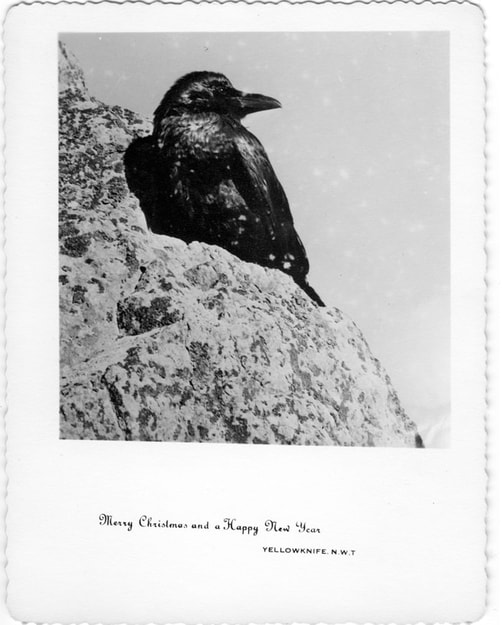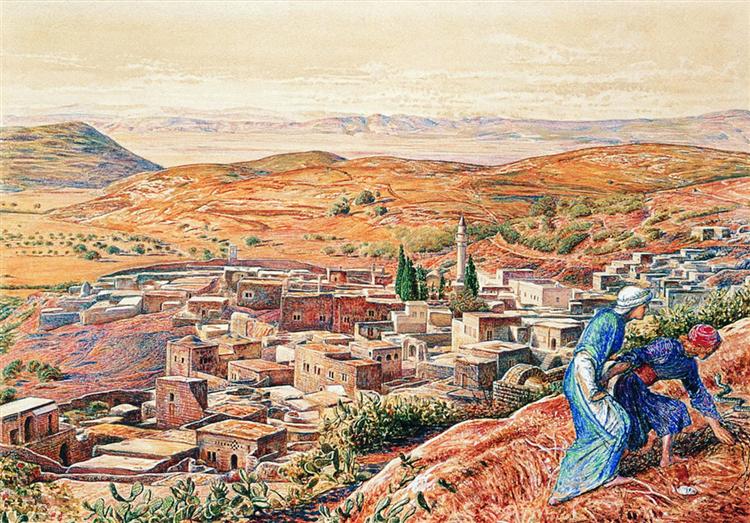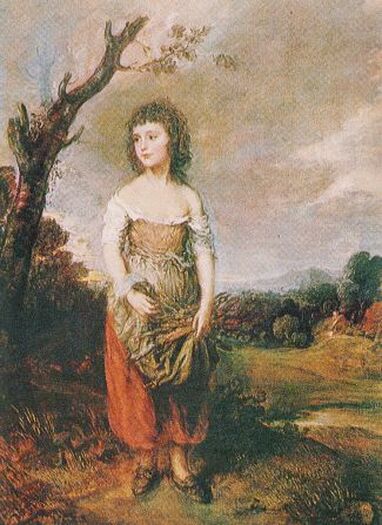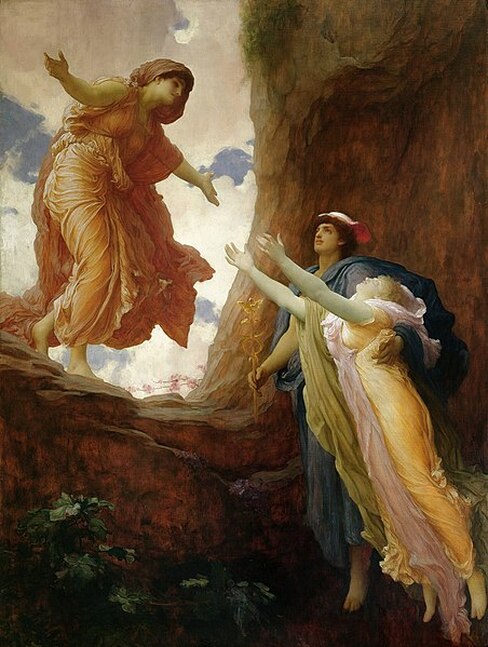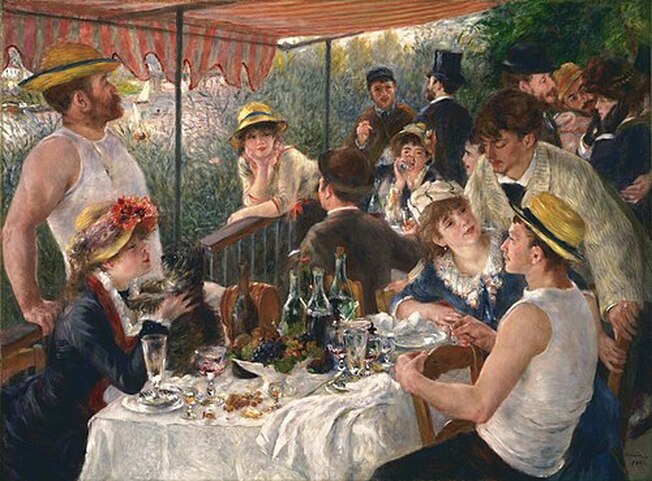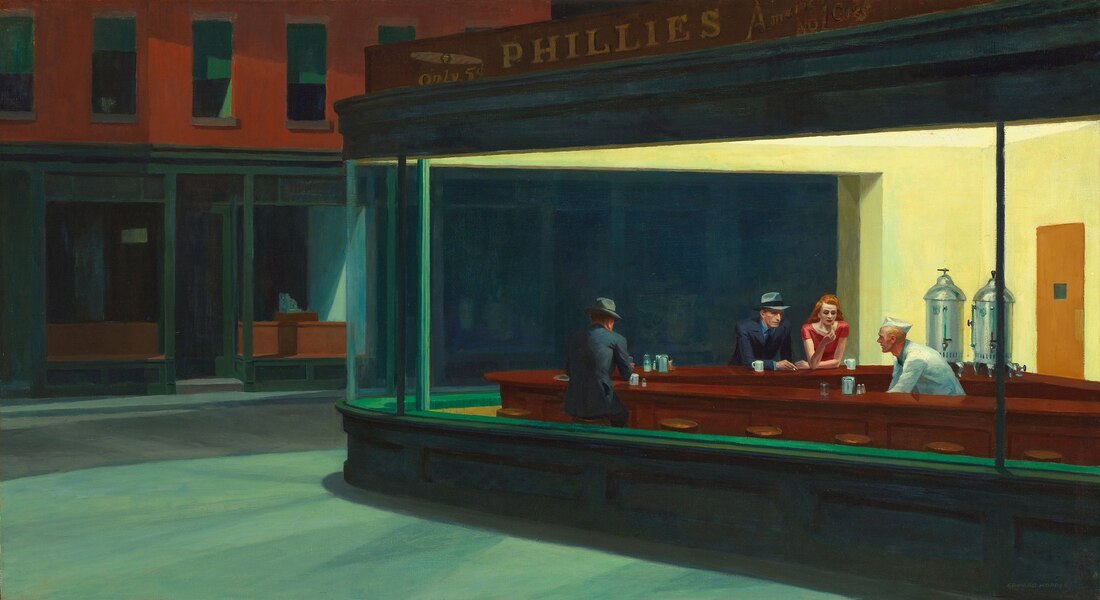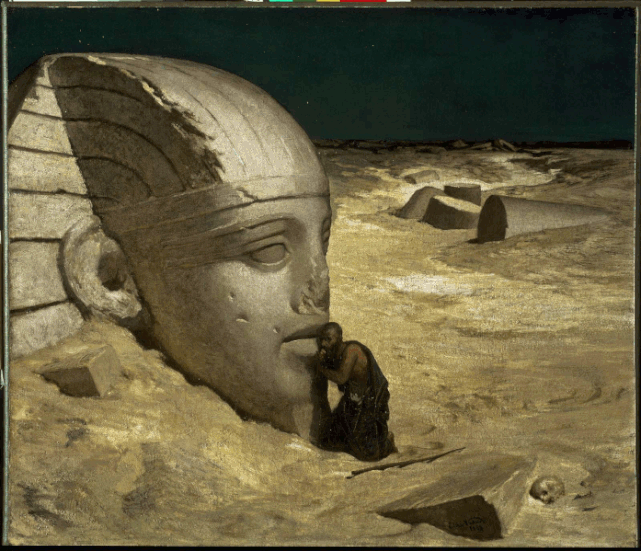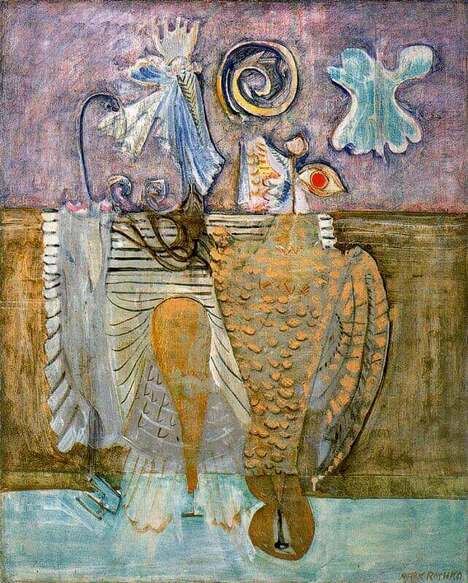|
Ravens On our way to the dump through a narrow winter trail a stark sight-- obsidian topped white tamaracks. Like x-mas tree toppers, except smouldering inside their anthracite coal blackness those ravens sat smack dab on lanky conifer leaders. Heads tucked low into the down of their napes, they looked sullen watching the snow lay a thin gauze on household detritus- ghost appliances, shattered crates, dismantled cabin frames, torn plastic bags overflowing with scraps. Gaudy flowers spilling from the horn of plenty in a Rococo painting. The birds lost their grease-slick sheen of Autumn back when they surfed updrafts, and pierced quickly and swiftly through vacuum packed steaks sat aside for porch BBQ’s. Now like us they’re slow, introspective on the lookout for crummy treasures in frozen images of boreal lore. Aldona Dziedziejko Aldona Dziedziejko is a Polish-Canadian poet and academic. Her poems appeared in Antithesis (SFU), Juice (U of W), CV2 (Winnipeg), subTerrain (Vancouver), Poetry is Dead (Vancouver) and the Nanaimo Art Gallery's "How can we speak differently?" event (Nanaimo). She has received the Lina Chartrand Poetry Award for an emerging poet in celebration of women’s achievements in writing. She is currently living in a remote hamlet in the Northwest Territories teaching visual art and special projects.
0 Comments
Three Roads The village, we hear, nestles, but at crossroads people-watching the banter carries headlines and domesticity - family feuds, deals done and battles won to ears of growing wisdom, amongst the shavings with a rural eye. So childhood is no refuge, from tattling tales, gabbling tongues, prattling cackle or serenity. The pilgrims pass with sorrow and thanksgiving doves though in the pack is stored continued searching worry. Caravans plod south, arrogant humped carriers bringing barter, and if the scam succeeds assured pot-bellied boasters rehearse their returning brilliance even as the pilgrims pass. And crossing through the battle wearied columns meet the fresh-faced conscripts, sneer and swear, revile the money-making proud and maybe curse the travellers, but smile inwardly at worshippers who remind them of their mothers. Stephen Kingsnorth Stephen Kingsnorth, retired from ministry in the Methodist Church, has had pieces accepted for publication by Nine Muses Poetry; Voices Poetry Blog; Eunoia Review; Runcible Spoon; Ink Sweat and Tears; The Poetry Village; The Seventh Quarry; Gold Dust; From the Edge and Allegro Poetry. https://poetrykingsnorth.wordpress.com/ To Gainsborough Tiring of face painting, your confounded ugly creatures, you retreat to your old landscape love. Great loose sweeps of your brush describe, without precision, the indifferent, darkening sky. The afflicted tree extends its blighted stumps which, viewed from the cottage in its glady dell, stands for the damaged, dirty soldier limping unrecognised, uncompensated, home from cruel wars. But this won’t pay the rent. Your swimmy, silken sheen conjures a child, both ragged and fancy. Shame on you, Thomas, to so exploit the rural poor. Mood music of humility and gratitude seeps out, just what your buying public wants to hear. As the oval of her curls frames the shining sadness of her face, so must your generous heart have been constrained to paint her so. But, Thomas, I accept the rough unfinished hands and little slippered feet as your apology. Kate Rigby Kate Rigby is a part-time poet and part-time historian, living in Manchester and luxuriously dividing her time between researching for the National Trust, creating displays in a historic library, and reading (and less frequently writing) poetry for her own pleasure. Kate has had poems published in journals such as Antiphon, Scrittura, Cannon’s Mouth and this month she appears in an anthology of Manchester poets writing about Peterloo. Persephone This business of dividing time is not The easiest. Six months below with him; Six months above with her—such means a lot Of moving out and settling in. For them, I must abandon home and habits twice A year and never have a moment to Myself. It seems the greater sacrifice Is mine than theirs. I come and go when due As set forth in a compromise once made Or rather ordered. Being loved so much Is less a blessing than a curse. Afraid I may get used to staying out of touch, My husband and my mother have proved loath To understand I always care for both. Jane Blanchard This sonnet, first published in Arion, is part of Jane Blanchard’s third collection, After Before, now available from Kelsay Books. Jane divides her own time between Augusta and Saint Simon’s Island, Georgia. THANK YOU to those who have supported us! We are most grateful for the recent gifts. You know who you are. YOU make this happen!!! We cannot thank you enough. ** Please consider some love for The Ekphrastic Review this holiday season. It takes an extraordinary amount of time to read through submissions, post accepted ekphrastic works, respond to queries, promote, seek permissions, and manage the challenges. We do not want to charge submission fees! Please share some voluntary love with a gift for your favourite journal. You might not think $5 will be noticed. It will- we very rarely receive gifts! Small or more, it means so much to us. We are most grateful for those who have helped us- YOU have helped nourish this amazing project. Click here to show your love. It's easy with PayPal, or contact us if you want to arrange an alternative way. You could sign up for our Book Shelf as well. This greatly benefits us and writers in return. You can list an ekphrastic book or a book by a contributor to the journal for $25 a year. Click here to add a book to our shelves, or buy one from one of our writers! THANK YOU Hunger Under the orange-striped canopy a densely arrayed table of fruit and wine corked bottles mating the fragrance of grape and oak backs bearing hand-sewn cloth and the rainbows of spring toward the banister a straw-hatted man leans back trimmed beard, thick forearms and biceps of a body whose hands earn their keep deep in the soil ushering gourds and roots into the light the smell of earth and rain in his pores weeds wade in the water while on the wooden deck fourteen lives mingle in the May of 1880 and there’s always a peacock in a crowd, a crow self-promoting its prowess cawing its intentions to sow and spread itself over the fecund fields in this parade of plumage in this concoction of muscle, meat, finery, fertility, the perfumes of pollination ache and restraint in the pleats of trousers, the press of dresses this pitch, this moment ripe and redolent, this pulse, this racing in place for close to a century now, dust Mark Elber Mark Elber has been published in various journals among which are four issues of Mudfish, Newtown Literary, The Jerusalem Review, Home Planet News, and The Sierra Nevada College Review. He has an MFA from the low residency program for writers at Warren Wilson College and is the author of The Everything Kabbalah Book and The Sacred Now. Mark was born in NYC and now lives in Fall River, MA. One Day in My Life On the morning of September 24, 2019, I wake with a question. What does an ordinary day look like when one pays close attention? The lamp casts a shadow of my hand moving across the journal. Intrigued, I press down on the pencil as if trying to imprint time on the page. I feel more than hear the scratch of the Pentel. I write time! When I look up, the shape of the wind is a river of beech-yellow leaves and I think how we each have our own signature. The wind’s is a loopy flow, with a freedom I don’t feel. Mine is focused with each letter made separately. I want my handwriting to look neat. I want control. Turning my attention back to the bedroom, I’m confronted with piles of books under the window on the floor. Looking at them produces discomfort—a reminder they have to be put away. My husband’s expectation. Hopper’s Nighthawks, for example, lies open, a full two-page spread. It occurred to me that it might be fun to write a haiku sequence to the painting, although it has probably been done. On top of painting are two haiku journals. The Overstory, and Jamison’s, The Recovering fall off to the side along with Midnight in Sicily. This written assignment on top flutters in the breeze. Back to Nighthawks, I write another haiku in my notebook, ignore the small voice within that tells me I have nothing to contribute. oasis in the midnight city of light The cellphone rings and I automatically answer. When the call ends, I drift to the iPad beside me. I scroll through messages, answer a few, until I realize my calm has been replaced with anxiety Without a segue, sadness sweeps everything else aside. Tuesday, September 24th. This was a Judy Day. I visited her once a week on Tuesday, but yesterday I learned that after our last get-together, she’d died. How could Judy be dead without anyone telling me? I even missed the memorial yesterday having no knowledge of her death. No one called—her sons didn’t call. I think of the gluten-free chocolate-layered cake in the freezer, the one she loved. I was bringing it today along with her black tea. How can she be dead? Later, I sit on the front porch. I look over what I’ve written, observe the sun-juddered trees, the evergreen’s long shadow in the middle of the court. Louise Erdrich’s The Painted Drum lies open on my lap. She speaks of how life will break you, betray you, but you’re here to risk your heart. I did that and Judy is dead. Erdrich’s solution of sitting under an apple tree, listening to apples falling wasting their sweetness, telling myself I’ve tasted as many as I could, doesn’t help with the hurt. Doesn’t help with her death. But I read it again anyway. Just in case. Mary Jo Balistreri Mary Jo has three full length books of poetry and one chapbook. She was a musician most of her life but due to the death of a grandchild and a consequent loss of her hearing, she turned to poetry. Mary Jo has always been interested in art and received her BA in art from the U. of Pennsylvania. Please visit her at maryjobalistreripoet.com. She lives in Wisconsin. The Riddle You are waiting- The plum pits of your eyes Dull. You are so thirsty, you’re a Yearning paper bag. You remember The desert was once an ocean. Picture A wave of salvation you can drink. The wetness. You went looking And you found your mortality. The desert at night A place of beauty, but the path you walked Vanished like a voice in a canyon. Just the Swirl of chaos—any way is forward, any Way is backwards. She reminds you of your mother- The hard-boiled egg of her eyes The lips parted. “Mothers are makers Of death*”-they have little mercy. They create things That will die. Did you think She could save you? Now a half-lion, half-woman Ponders your fate. You still wait. Why Ask for riddles and myths in Place of politics? Maybe You would like death better If you disappeared right away. Instead of slowly fading Like a myth in a language No one remembers to Speak. Suzanne Richardson *inspired from "Mothers As Makers of Death" by Claudia Dey, The Paris Review Suzanne Richardson is currently a professor of English at Utica College in Utica, NY. Her work has appeared in New South, New Ohio Review, and Blood Orange Review, among others. Shalome, Salomé She sits sweaty, disheveled- a fortunate soldier after the fray. Muscles in grip of lactic acids, hair appears as wig covering masculine jaw. Glorious after the trade- a dance for a baptist's head. Victorious with ceremonial sword presented with bowl of drippings. She could have done it herself, all sinew and physique. Appearances being their own currency, let a simple man do a simple job- elegant energy best expended on classical forms. The ornate box on which she sits contains no surprise- velvet pillow cradles penny-covered eyes. Jordan Trethewey Jordan Trethewey is a writer and editor living in Fredericton, New Brunswick, Canada. His new, frightening book of verse, Spirits for Sale, is now available on Amazon from Pskis Porch Publishing. Some of his work found a home here, and in other online and print publications such as Burning House Press, Visual Verse, CarpeArte Journal, Fishbowl Press, and is forthcoming in The Blue Nib. His poetry has also been translated in Vietnamese and Farsi. Jordan is an editor at https://openartsforum.com. To see more of his work go to: https://jordantretheweywriter.wordpress.com. ** Salome Danced When Herod interrupted, bullying the lithe young lady to request some reward, Salome told her mother I find everything I want in dance, so you pick. An hour later, Herod handed Salome a platter bearing a bloodied severed head- what the hell, she thought, I dance, damn it. I want to dance, that is all! Old John’s fresh ghost must’ve sensed her passion, fierce, pure as his own, for his crusty lips parted and blew forth a tempest that swept Salome away. Old storytellers say she wanders now, dances in trees come stormy nights… Oh Salome, the black sky flashes gold. I see you, come to dance outside my rattling window! I will never interrupt. Your hair slings water as you pirouette! The wind sings wild melodies. Your feet rise and sweep, bare and free. Jessica Federle J. Federle’s writing has been acquired by The Threepenny Review and The Saturday Evening Post, among others. For a decade, she edited technical writing—engineering reports, medical studies, business proposals… this career spiraled into the madness that now enriches her fantastical (often ghost-riddled) prose and poetry. Born and raised in Kentucky, she earned her MA in 19th-century Romantic poetry at the University of Bristol, England. When not haunting library aisles, she travelled Europe with a handsome Peruvian; they’ve since married and flown off to South America. ** Queen for a Week The painters have always used poor girls, usually prostitutes, as their stepping-stones while building themselves the pyramids of artistic glory. "Be a queen for a week," they have panted in the ears of the homeless and the starving Marias, Jeannes, Marguerites, Annes, Alices, Mildreds, Ediths, and Florences to name a few, and only a few have turned their offers down. The girls have enjoyed the thrill of stripping down before the "gentlemen" and putting on the dresses usually borrowed from the near-by shops: to be returned after the week is up. The girls have enjoyed their glasses of cheap wine and the plates of cheese, bread, and fruit, and after a few days, many have fallen in love with the fancy slavers since slavers the painters have been, nothing more and nothing less. But in the hearts of the painters, love has not been present: Adam has not found his Eve. After a week, the painters have already been focused on the next projects, and while the heartbroken Marias, Jeannes, Marguerites, Annes, Alices, Mildreds, Ediths, and Florences to name a few have been crying and beating on their doors, the painters have been panting in the ears of the other homeless and starving girls: "Be a queen for a week." Paula Puolakka Paula Puolakka (1982) is a Beat poet, writer, and MA (History of Science and Ideas.) She has landed first and second in the poetry and short story contests and challenges held in the USA, Israel, and South Africa. She has also been awarded in a few essay contests held in Finland. Her latest work can be found through, for example, The Reader/Author Connection (May Issue #5 & November/December Issue #8), Woody Guthrie Poets (the "Speak Your Mind" poetry contest anthology,) Arts Quarter Books, Jerry Jazz Musician (Fall 2019 poetry edition,) and The Voices Project. ** Salome by Regnault How much would you pay for a dance If you were a king? Anything you want, Said Herod to Salome who wove A spell with her veiled almond eyes, Hands that fluttered like butterflies, Hips that hypnotized. I want the head of John the Baptist She said when done. Well, An oath is an oath, Herod sighed. In Regnault’s Salome, a boyish girl, or a girlish boy doesn’t give a fig for the fate of a saint, the knife she cradles will bring her mother his head on a platter. Ed Meek Ed Meek has had poems in The Paris Review, the Sun and Plume. High Tide, his new book of poems, is coming out in 2020. ** Salome Over the ages you have intrigued us. We have taken to art to depict your charm, your sparkle, our fascination like the pull of north and south magnetic fields. We have dramatized how you seduced the leading men of Galilee with dance, how Herod Antipas, frenzied with wine and wantonness, offered you half his kingdom, how you demanded more; you, bent on blood. After two thousand years you still dazzle. Here you are on canvas, sultry, rosy-cheeked, shimmering in gauze golds, your dark tresses, shadowed face and half-smile as mysterious and beguiling as the gem-eyed serpent bracelet coiled about your upper arm. With one hand on hip, the other resting on ivory-hefted knife sheathed in red, you tout danger, a readiness to pounce, a willingness to do the dirty work. You pose, poised for power, as wild and barbarous as Dionysian fertility rites. But could we be deceived? Might you have been simply the lioness’ cub, a damsel distressed, the pawn moved on the chessboard by a cold, calculating, grudge-holding mother? Were you caught in a snare like a moth in a spider’s web when you called for the prophet’s head upon the platter? Oh, but no matter, Salome. Violent delights have violent ends. Death at last stalked you to a frozen river and cracked the ice. Jo Taylor Jo Taylor is a retired, 35-year English teacher from Georgia. Her favorite genre to teach high school students was poetry, and today she dedicates more time to writing it, her major themes focused on family, place, and faith. She says she feels compelled to write, to give testimony to the past and to her heritage. She has been published in The Ekphrastic Review, in Silver Birch Press and in Heart of Flesh Literary Journal. ** Salomé After my golden chiffon slips, his eyes narrow, he gasps, and his throat clenches, unable to mutter oh god, like an umlaut. He offers half his kingdom—gold, still buried, ripe vineyards, and fields of fighting men to fill Southern Galilee’s beds of silk sheets-- and yet, I only ask for one man’s head. In my dressing room of honey and apricot, I don’t gloat my prize. No blood, no ringlets belonging to the Baptist scrunching like caterpillars, no furrow-stem brow, or solemn tongue. The evidence is in my taut feet. My platter holds a scimitar encrust in gold gilt. My platter holds the glint of a gibbous moon, and in that moon, sits the black thistle over my shoulders, and a smirk, and in that smirk, is my sheathed tongue. You expect alchemy to boil from my mouth, to glean a nest of cocoons for my room of yellow silks, but look how my platter fills, and holds room for more. Miguel A. Soto Miguel A. Soto is the Book Review and Website consultant for Jet Fuel Review. His work has appeared in 30N, EFNIKS, Rogue Agent, and other literary journals. He is also a fellow for the Wolny Writing Center. ** Salome Flimsily clad Sassy All-too-ready To follow Mother’s Greedy footsteps Messenger Of God Soon beheaded (John neither ate Nor drank) His head severed While Salome Danced In step with sin Knife in hand Platter Dripping holy blood Regnault’s work Limns The loathsome deed Salome Doesn’t know The party’s over Carole Mertz Carole Mertz writes essays and poetry, with several works published here at The Ekphrastic Review. She is the author of Toward a Peeping Sunrise, a poetry chapbook. Other recent works are in Main Street Rag and Into the Void. ** The Dance That Made Me Immortal First, let me be clear. There were no seven veils. The Bible doesn’t even name me. Yet, I’m not allowed to die. I’m a woman with a reputation. At the time, I was just a young girl, trying to please Herod, my stepfather. He called me out, impromptu, giving me my first glass of wine. (They never tell you that in the stories.) And when I stood, bowed, and started to move, my body curved itself into a swan, then a bird in flight. Lost in the trance of dance, I didn’t stop until the music did. It was one moment in my life, but it labeled me for centuries. Trying to please my parents, Herod by dancing, my mom by asking for the head of John the Baptist. She tended toward cruelty when she couldn’t have her way with a man. So here I am now in the 19th century as Henri Regnault paints me, weary. His idea of what a Middle Eastern girl might have worn in my day. One foot arches seductively above a slipper. And there’s plenty of décolleté. At least, he gave me a smirk to offset such a wanton costume. Do these men who imagine me in ballet, opera, plays, paintings, poetry think about me as anything other than an erotic object? Or about the meaning of my name? Sa-lome, two syllables, not three, from the Hebrew "shalom" for peace, or "shalem" for whole, complete, the perfect woman? Sandi Stromberg Sandi Stromberg was a professional magazine feature writer and editor who now enjoys writing poetry. She served on the board of a poetry press for ten years, has been nominated for a Pushcart prize, and had her poetry read on NPR. ** Dance of Destiny A self-satisfied smile, Smug and carefree, Perhaps a trace of imperial majesty Tinged with some boredom, A face about to greet the frozen expression of John the Baptist, Fiery glee, burning Eyes, pebbles of coal Half-covered by hair, Surrounded by wrinkled drapery, Saffron waves Etched in silver, Crinkling with the austere allure of jewels on your dress, But that you long to escape, These gilt confines, Too much for any mind, All aglow with life Lying in wait, With that triumphant cocked arm, Confidently poised, A wily sleeve trickling past the shoulder In unkempt contentment. Toes arched, Ready to dance; A platter, fit for a king, Salome ruffles the carpet, Holding the velvet sheath, Shrouded in mystery, Unslippering her restless feet. Proud to pose for a portrait To glorify your golden deeds With their metallic shine, Like that smile most sly, Absorbed in time, Just a moment Above the richly-patterned Persian box, Unknown treasures, Stories inside, Just like we’ll never know What, exactly, Behind that smile Still hides. Kathryn Sadakierski Kathryn Sadakierski draws much of her inspiration from art and nature. She is passionate about combining her love for language with her appreciation for the beauty of art through ekphrastic poetry. Kathryn graduated summa cum laude from Bay Path University with her B.A. in Liberal Studies, and is currently pursuing her Master's degree. ** personifications what is this trembling, these lines of unreadable script? why does every image waver unfixed, falling into its surroundings? the drunken movement of feet, the silhouette, illuminated, shadowed, a dark form girdled by an aura of intense light-- repelled by the afterimage, the nakedness of what is not quite there-- always uncertain, these layers of unveiled mind left untethered to the movements of the body-- the dance that finds only the precipice Kerfe Roig A resident of New York City, Kerfe Roig enjoys transforming words and images into something new. Follow her explorations on her blogs, https://methodtwomadness.wordpress.com/ (which she does with her friend Nina), and https://kblog.blog/, and see more of her work on her website http://kerferoig.com/ ** Desire Is a Mule Desire is a mule Working for you for twenty years Like Faulkner Just for the chance to kick you once When you’re not looking And never where you expect With a foot so soft, arched, petite As a dragon’s mouth is wide. Desire dangles from the toe it covers Ready to drop, but not quite falling, Not yet. The heel exposed, juicy and round, Peelable, luscious, Perhaps the unseen toes Pebbled and succulent? There’s that kick again. Best worn in red To the church of beautiful women. The Comtesse d’Olonne, A name most difficult to purify, Went there as bidden, and with scarlet feet matching some of the magistrates’ own mulleus calceus not otherwise purple, A church full of desire And plenty of kicking. Herodias’s daughter Afoot as well and dancing Carried the desire of her mother Plating it as a reward For a dance done by her Salome, A girl named peace Who would just as soon have the platter As the head upon it. When a jackass and a mare get together Cobbling a half shoe Starting with the pointy end Where maximum thrust is found But never finishing truly Half covered We know it’s there Darkened or not. In Dean Martin’s song “Ain’t that a kick in the head?” Desire takes hold. He’s not wrong. He just hasn’t seen The foot slide in and out Or the dagger toes curled round it Still covered with satin. Kate Bowers Kate Bowers is a Pittsburgh based writer who works for a large public school system by day. She has been published previously in The Ekphrastic Review and is a compulsive reader of anything with print on it. So if you find her staring at you oddly, you're probably holding something she can't quite read. Or, she just likes you. Kate is a trained improviser, loves to swim, and is a big fan of gardening and life. ** Once the Sword Salome is who Mother wanted us to be-- jet black hair in gypsy curls flowing over pale shoulders and dressed for the stage. But she complained beginning in grade school about what she called my Sarah Bernhardt ways. It took years before I understood the reference. She wanted the look not the voice in third grade that could carry across the auditorium in a play without microphone. She needed us to invest in our appearance because she thought attracting men would take us farther down the road than we’d get on our own. It must have been because she never drove a car and that each man got in one and left her behind one even pushing her out an open door on a curve. When she came home with asphalt in her hair and patches of scalp gone we listened but knew what she could be like when she started to drink. Because no one actually was as smart as she was and those were times when it was better to keep your mouth shut, sway your hips and swing a mighty sword. Kyle Laws Kyle Laws is based out of the Arts Alliance Studios Community in Pueblo, CO where she directs Line/Circle: Women Poets in Performance. Her collections include Ride the Pink Horse (Stubborn Mule Press, 2019), Faces of Fishing Creek (Middle Creek Publishing, 2018), This Town: Poems of Correspondence with Jared Smith (Liquid Light Press, 2017), So Bright to Blind (Five Oaks Press, 2015), and Wildwood (Lummox Press, 2014). With eight nominations for a Pushcart Prize, her poems and essays have appeared in magazines and anthologies in the U.S., U.K., Canada, and France. She is the editor and publisher of Casa de Cinco Hermanas Press. ** I Will Dance I smirk today to celebrate my last seduction-- dancing at the banquet wearing a gold gown, thinly veiled by silk. And if I shall dance again on Herod’s birthday like the motion of the sea rolling back with mischievous clouds above Galilee, will my mother send another request to behead a man like John the Baptist, who said her marriage was unlawful? I know you are proud, mother, that I can entice these men by turning my body endlessly in half circles. I miss the severed head by the dagger I am ready to unsheathe. For my next dance, no, instead I will ask for more than a blood trail. I will want half the kingdom. I am bent so far now, exotic like an oriental chest, and inside, a leopard purrs, ready to leap. John Milkereit John Milkereit is a mechanical engineer working in the oil & gas industry in Houston, TX. His poems have appeared in various literary journals including The Ekphrastic Review, San Pedro River Review, and The Ocotillo Review. He completed a M.F.A. in Creative Writing at the Rainier Writing Workshop in Tacoma, WA. His most recent collection of poems, Drive the World in a Taxicab, was published by Lamar University Press. ** Salome Rejecting her was not an option. And princesses aren’t sluts. Wasn’t that what he’d called her? She loved to show her body and when she danced she felt lust streaming from the men who watched. Even her father. After all, they’d always used her. The time had come to show them who she had become. A woman. Empowered. In control. She had learned in those small hours of many mornings what it meant to be abused. She’d been five. Her uncle came into her room, his robes undone. Her father had insisted on the marriage. Princesses don’t play. Princesses get sold. Princesses become queens. After her uncle it had been her cousin. So far it had stayed in the family. Then she’d seen him. Yochanan. And for the first time she had hungered. She had lusted. He’d been so beautiful, and he had taken exception to incest and betrayal. The fool. Did he not know of the real world? She had offered herself to him, and he had rejected her. She, Salome, would have her revenge. His head on a plate. Nothing less would do to wipe off the stain. Rose Mary Boehm A German-born UK national, Rose Mary Boehm lives Lima, Peru. Author of one full-length poetry collection and two chapbooks, her work has been widely published in mostly US poetry journals. Her latest full-length poetry MS, The Rain Girl, has been accepted for publication in June 2020 by Blue Nib. Her poem, ‘Old Love’s Sonnet’, has been nominated for a Pushcart by Shark Reef Journal where it was published in the Summer of 2019. ** I Have a Certain Reputation I hear your whispers: Salome the Slut, Princess Prostitute, Prophet Slayer. Despite what you’ve heard, I had no sinister plan before my famous dance. A hundred times a day, I go back to that evening, feel all eyes caressing my body, know I can win some treasure with undulating hips and scarves that follow my curves. I begin slowly, theatrical foreplay, use my graceful arms to say, “Come touch me.” I twirl and spin – faster, faster, until Herod swoons, drunk with desire. Women have no say without using wealthy, powerful men. My lewd stepfather revolts me. I spot my turns a foot above his head. He fancies I’m looking dreamy-eyed at him, but it’s the Baptist’s eyes I see, looking straight through me to a dark place. I know he’s locked in a cell below. Herod offered me a reward. Mother chose John’s head. I got the blame. I believe the Baptist knew exactly what was coming. Alarie Tennille Alarie Tennille graduated from the University of Virginia in the first class admitting women. She’s now lived more than half her life in Kansas City, where she serves on the Emeritus Board of The Writers Place. Her latest poetry book, Waking on the Moon, contains many poems first published by The Ekphrastic Review. Please visit her at alariepoet.com. Spirit of Myth Some things never change. Take, for instance, the hierarchy of birds. At the lowest level, principalities, archangels, or angels with brown and sheer white tail feathers rise out of layers of aqua. Above them, a band of soil flecked with gold and darkest brown is scraped away by human hands. There, dominions, virtues, or powers bare their bellies, one broad and white with roots or ribs—it's not for me to say-- another brown and gray stippled with orange as if part of the earth. Their heads are in the haze of heavens, brushstrokes of pink and blue and white. And this is where we leave the earth with a gesture looping as on a frieze: A red eye blinking back at me where thrones and cherubim and seraphim appear, unknowable. Karla Daly Karla Daly is a third-year MFA Creative Writing candidate at American University and has worked in various editorial capacities for many years. Her poetry has appeared in District Lines, The Prose-Poem Project, and Alimentum: The Literature of Food, and she was a co-winner of The Phillips Collection’s Lupertz Poetry Challenge. She lives in Washington, DC. |
The Ekphrastic Review
COOKIES/PRIVACY
This site uses cookies to deliver your best navigation experience this time and next. Continuing here means you consent to cookies. Thank you. Join us on Facebook:
July 2024
|
